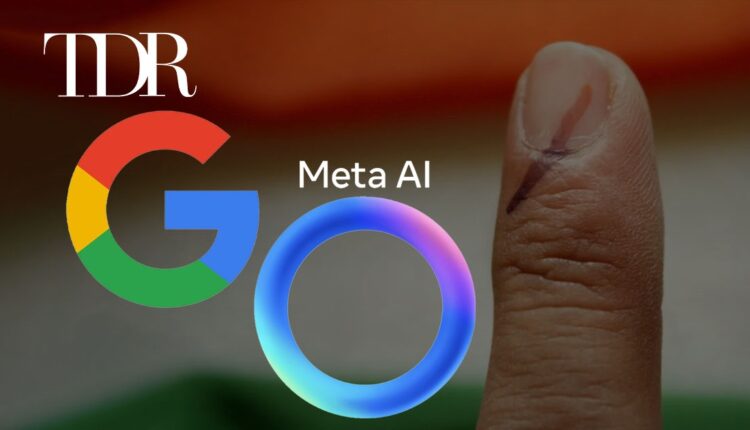
Meta AI and Google Differ on Election-Related Queries in India
The TDR Three Key Takeaways regarding Meta AI and Google:
- Meta AI lifts restrictions on election queries, boosting AI system confidence.
- Google keeps election query restrictions for Gemini AI, prioritizes caution.
- ChatGPT and Microsoft Copilot have a mixed approach, not to give direct answers.
Meta AI (NASDAQ: META) and Google (NASDAQ: GOOGL, GOOG) have implemented distinct policies regarding election-related queries in India. This action comes amid growing concerns over the accuracy and impact of generative AI responses during significant political events.
Meta AI has recently lifted its restrictions on election-related queries in India. This decision reflects the company’s confidence in the improvements made to its AI systems. “This is a new technology, and it may not always return the response we intend, which is the same for all generative AI systems. Since we launched, we’ve constantly released updates and improvements to our models, and we’re continuing to work on making them better,” a Meta AI spokesperson told TechCrunch.
Google, on the other hand, has decided to maintain its restrictions on election-related queries for its Gemini AI model. Citing caution as a primary driver, a Google spokesperson explained, “With major elections happening around the world this year, and out of an abundance of caution, we’re restricting the types of election-related queries for which Gemini will return responses and instead point people to Google Search. These restrictions are applied globally.”
These differing approaches highlight the challenges and responsibilities faced by tech giants as they manage the deployment of generative AI technologies. While Meta AI is pushing forward with fewer restrictions, Google’s conservative stance aims to minimize potential misinformation during critical electoral periods.
Meta AI’s decision to lift the block on election-related queries in India underscores their commitment to refining their technology and enhancing user experience. This step might be seen as a testament to the advancements in AI safety and reliability, demonstrating Meta AI’s confidence in handling sensitive information responsibly. It also opens a dialogue about the balance between technological innovation and the ethical implications of AI in democratic processes.
Google’s decision to maintain restrictions reflects a more cautious approach, prioritizing the accuracy and reliability of information during elections. By redirecting users to Google Search for election-related queries, Google ensures that the information provided is curated and vetted, thus reducing the risk of misinformation. This approach underscores the company’s commitment to maintaining trust and reliability in its services, especially during crucial times like elections.
Chatbots like ChatGPT and Microsoft Copilot employ a mixed approach. According to TechCrunch, these bots don’t answer direct questions such as “Who won the Indian general election of 2024?” Nevertheless, they can retrieve information from the web when queried about current officeholders and politicians.
AI tool developers are already facing scrutiny due to issues with bias and misinformation in their outputs. These companies are particularly cautious to avoid getting entangled in political controversies, especially as they aim to expand their AI applications. Want to be updated on Cannabis, AI, Small Cap, and Crypto? Subscribe to our Daily Baked in Newsletter!



